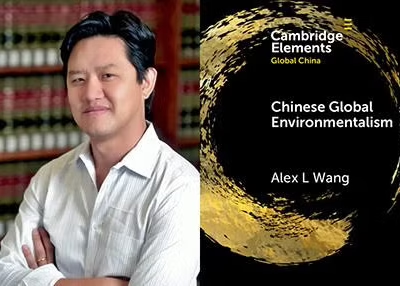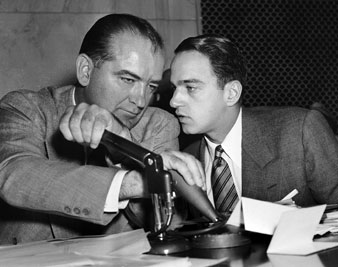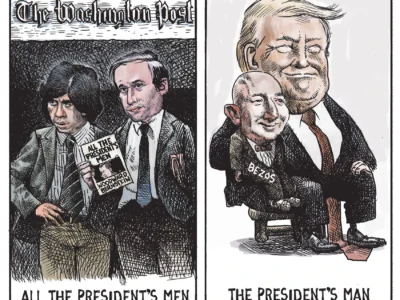A Funny Way to Celebrate Earth Day

My home institution of UCLA has decided to commemorate Earth Day in a clear and bold manner: it has banned tobacco on campus, starting on — well, today.
The Westwood campus is the first UC to implement the ban, following a call from President Mark Yudof to go smoke-free across the 10-campus system by 2014.
“We’re very proud we’re the first,” UCLA Chancellor Gene D. Block said. The campus and its students “are setting an example.”
The Earth Day launch date was especially significant because “in order to take care of the earth, we must take care of ourselves,” Block said.
I like Chancellor Block. He’s a nice guy, and I think he cares a lot about the university and its members. But I think his assertion is just wrong here. Taking care of the Earth may mean changing some of our habits, and perhaps some of our personal consumption habits. But smoking doesn’t seem to be one of them. (If I were in a particularly cynical mood, I would say that smoking reduces life expectancy, and so reduces the opportunities for the smoker to emit carbon.). Anti-environmentalists have long accused the environmental movement of wanting to intrude into people’s personal lives, and this provides a small data point in their favor.
Besides, this really seems overly paternalistic to me, especially because UCLA is a state university. I can see banning smoking indoors, which the university did awhile ago. But I don’t see any particular externalities associated with smoking outdoors, or even chewing tobacco (which is also banned), unless you are spitting on the sidewalk (which was also banned awhile ago). For me, there is an important distinction between the new UCLA policy and, say, the New York City ban (now enjoined) on large sodas: with the latter, if it’s really important to you, get up and buy another soda. It just is not too much of a burden. But the wholesale banning of a product is.
As long as 18 year-olds can vote and serve in the military, without more evidence of externalized harm it is hard for me to justify forbidding them access to tobacco. It is certainly plausible that fewer undergraduates will smoke because of this policy, but it is not clear to me that it is the university’s job to make that decision. If anything, the point of a university is to educate, not to mandate. If there was evidence that campus access to tobacco led to greater peer pressure to smoke, then I could be persuaded otherwise. But at least I haven’t seen it yet.
If the university was really serious about improving the health of students, then maybe it would offer healthier food in its cafeterias — which it often doesn’t. It would not make candy, other foods with processed sugar, and hydrogenated oils available all over campus — which it often does. Of course, the university doesn’t make any money from tobacco, but it sure does from food service. I’m sure that has nothing to do with it. To be sure, the university like any policymaker, need not do everything consistently all at once. But this is really avoiding the big problem for the little one.
I detest smoking. In my view, the tobacco industry is something close to an ongoing criminal conspiracy. Eighteen and nineteen-year-olds are not fully capable of determining what is best for them. But the law presumes that they are, for several excellent reasons, and I see no reason to deviate from it here.
Reader Comments
10 Replies to “A Funny Way to Celebrate Earth Day”
Comments are closed.







As smoking restrictions have been phased in over time I just realize how unpleasant passive smoke is more and more. Personally don’t like being within 100 feet of someone smoking outside. And I know asthmatic folks who find a breath of smoke even more unpleasant. Might ruin their afternoon.
Maybe it’s a nanny-state thing, but if it’s private property or government property I don’t see a problem with restricting behavior that clearly effects the smokers themselves and others.
—
If you want to talk about a weird way to celebrate Earth Day, you should look at what McConnell did — celebrate a power plant repurposing coal waste as fertilizer. Talk about a little bit of lipstick on a pig.
As smoking restrictions have been phased in over time I just realize how unpleasant passive smoke is more and more. Personally don’t like being within 100 feet of someone smoking outside. And I know asthmatic folks who find a breath of smoke even more unpleasant. Might ruin their afternoon.
Maybe it’s a nanny-state thing, but if it’s private property or government property I don’t see a problem with restricting behavior that clearly effects the smokers themselves and others.
—
If you want to talk about a weird way to celebrate Earth Day, you should look at what McConnell did — celebrate a power plant repurposing coal waste as fertilizer. Talk about a little bit of lipstick on a pig.
A former “government scientist” once gave an opinion here:
http://www.nytimes.com/2002/10/25/opinion/l-smoking-on-the-street-558370.html
I remember that letter spoke for me.
A former “government scientist” once gave an opinion here:
http://www.nytimes.com/2002/10/25/opinion/l-smoking-on-the-street-558370.html
I remember that letter spoke for me.
“I don’t see any particular externalities associated with smoking outdoors.” I see many. I cannot walk across LSU’s campus on a nice day without at some point breathing in a haze of smoke. This is by definition of an externality. How can air pollution be the preeminent example of an externality, but smoking not? An externality “is a cost or benefit which results from an activity or transaction and which affects an otherwise uninvolved party who did not choose to incur that cost or benefit.” Yes, I choose to walk across campus, because I have to get from the school of the Coast and Environment to the Law School so I can earn a paycheck and feed my family. But I do not choose to breath in cancer dust from all the chimneys here on campus. They ban smoking indoors, then everyone congregates outside an exit. So I still am forced to walk through a toxic haze to go into or out of a building. Just last weekend I was running in Pittsburgh along the river. These guys had stopped there bikes ON THE RUNNING TRAIL and were puffing away – perfect, right as my lungs are working the hardest. So, I not so politely yelled over to them as I passed by “Hey guys, nobody wants to breath your cancer dust when they’re running on this trail.” To go all “property” on you, it’s a physical invasion at that. Much like the McCarty case and a chimney that covers a neighbor’s house in black smoke. I breath smoke, my clothes smell like smoke, and so on. Its as if I were running around campus injecting people with concentrated doses of aspartame from all of the diet drinks I consume on a daily basis. That would be frowned upon, I am sure. Sure, alcohol causes damage when people get in their cars and drive, engage in violence, etc. But a guy sitting next to be drinking a beer is not giving me a buzz. But one smoker in the 50 foot path I have to walk through to be a functional member in society is destroying my lungs, not to mention my enjoyment of a nice day. I applaud their efforts and hope other campuses follow suit.
“I don’t see any particular externalities associated with smoking outdoors.” I see many. I cannot walk across LSU’s campus on a nice day without at some point breathing in a haze of smoke. This is by definition of an externality. How can air pollution be the preeminent example of an externality, but smoking not? An externality “is a cost or benefit which results from an activity or transaction and which affects an otherwise uninvolved party who did not choose to incur that cost or benefit.” Yes, I choose to walk across campus, because I have to get from the school of the Coast and Environment to the Law School so I can earn a paycheck and feed my family. But I do not choose to breath in cancer dust from all the chimneys here on campus. They ban smoking indoors, then everyone congregates outside an exit. So I still am forced to walk through a toxic haze to go into or out of a building. Just last weekend I was running in Pittsburgh along the river. These guys had stopped there bikes ON THE RUNNING TRAIL and were puffing away – perfect, right as my lungs are working the hardest. So, I not so politely yelled over to them as I passed by “Hey guys, nobody wants to breath your cancer dust when they’re running on this trail.” To go all “property” on you, it’s a physical invasion at that. Much like the McCarty case and a chimney that covers a neighbor’s house in black smoke. I breath smoke, my clothes smell like smoke, and so on. Its as if I were running around campus injecting people with concentrated doses of aspartame from all of the diet drinks I consume on a daily basis. That would be frowned upon, I am sure. Sure, alcohol causes damage when people get in their cars and drive, engage in violence, etc. But a guy sitting next to be drinking a beer is not giving me a buzz. But one smoker in the 50 foot path I have to walk through to be a functional member in society is destroying my lungs, not to mention my enjoyment of a nice day. I applaud their efforts and hope other campuses follow suit.
Setting aside the very tenuous connection between second hand smoke in a well ventilated outdoor area (unless you are within a few feet of the smoker) and health effects – do all of you people waxing about how you do not want to smell smoke on campus also agree with the ban on chewing tobacco?
Because it seems to me that if our worry was really about negative externalities to bystanders and not just making peoples health decisions for them, that tobacco use without smoke would be completely allowed. In fact it seems like a compromise – we do not want to smell your smoke but here is a range of options to satisfy your addiction.
Further, conflating an anti smoking regulation and environmentalism sounds great for the liberal environmentalist who believes in both – but if environmentalists want to have a clear and non-conflated message that appeals to like minded moderate and conservative’s, then statements like this are detrimental to the cause. One of the biggest conservative talking points is that liberals raise the spectre of environmental destruction to pass unrelated liberal idealist laws, and it breaks my heart when the point is shown to have some truth.
I have never once put a tobacco cigarette to my lips. I detest the stuff. But without actual scientific data providing that outdoor smoking in specified areas (that I can stay away from) is going to hurt me I am unwilling to declare that my fellow students should be banned from exercising a personal decision to do something that is completely legal.
Of course, it is also important that the majority of people who smoke are also of the socioeconomic class that can have a hard time reaching a university like UCLA. Alienating a subset of the population in the name of their own health seems like a bad way for a public university with a goal of inclusion to go about its business.
Setting aside the very tenuous connection between second hand smoke in a well ventilated outdoor area (unless you are within a few feet of the smoker) and health effects – do all of you people waxing about how you do not want to smell smoke on campus also agree with the ban on chewing tobacco?
Because it seems to me that if our worry was really about negative externalities to bystanders and not just making peoples health decisions for them, that tobacco use without smoke would be completely allowed. In fact it seems like a compromise – we do not want to smell your smoke but here is a range of options to satisfy your addiction.
Further, conflating an anti smoking regulation and environmentalism sounds great for the liberal environmentalist who believes in both – but if environmentalists want to have a clear and non-conflated message that appeals to like minded moderate and conservative’s, then statements like this are detrimental to the cause. One of the biggest conservative talking points is that liberals raise the spectre of environmental destruction to pass unrelated liberal idealist laws, and it breaks my heart when the point is shown to have some truth.
I have never once put a tobacco cigarette to my lips. I detest the stuff. But without actual scientific data providing that outdoor smoking in specified areas (that I can stay away from) is going to hurt me I am unwilling to declare that my fellow students should be banned from exercising a personal decision to do something that is completely legal.
Of course, it is also important that the majority of people who smoke are also of the socioeconomic class that can have a hard time reaching a university like UCLA. Alienating a subset of the population in the name of their own health seems like a bad way for a public university with a goal of inclusion to go about its business.
I agree with the message of the article, there are much greater gestures that a UC campus can make to celebrate Earth Day. But I respectfully disagree that there is no connection between smoking and the environment. Cigarette litter may not be as great a problem as climate change, but there are significant and growing environmental impacts of cigarette waste.
– according to a 2009 article in the International Journal of Environmental Research and Public Health – cigarette butts are the single most littered item worldwide. 4.5 trillion cigarette butts are improperly discharged each year (approx. 1.69 billion pounds). In community clean ups, they are the most commonly collected item. The butts contain highly toxic alkaloid nicotine and leachable chemicals and the plastic filter tips are non-biodegradable. While the impact of a single butt may not be great, however, given their numbers there pose risks to water ways and marine animals.
– http://www.mdpi.com/1660-4601/6/5/1691#cite
Freshwater experiments with water fleas demonstrated lethal doses at 0.125 cigarette butts per liter (one butt per two gallons of water). Nicotine is a natural and powerful insecticide. The buts also act as attractive ingestion dangers to fish, birds, and infant humans.
– Kathleen M. Register “Underwater Naturalist” Bulletin of the American Littoral Society, Volume 25, Number 2, August 2000
The litter rate for cigarettes is 65%. Meaning then less than half are properly disposed of. Cigarettes represent 38% of all roadway litter.
– http://www.kab.org/site/PageServer?pagename=CLPP_landing
CONFIDENTIALITY NOTICE: This communication with its contents may contain confidential and/or legally privileged information. It is solely for the use of the intended recipient(s). Unauthorized interception, review, use or disclosure is prohibited and may violate applicable laws including the Electronic Communications Privacy Act. If you are not the intended recipient, please contact the sender and destroy all copies of the communication.
I agree with the message of the article, there are much greater gestures that a UC campus can make to celebrate Earth Day. But I respectfully disagree that there is no connection between smoking and the environment. Cigarette litter may not be as great a problem as climate change, but there are significant and growing environmental impacts of cigarette waste.
– according to a 2009 article in the International Journal of Environmental Research and Public Health – cigarette butts are the single most littered item worldwide. 4.5 trillion cigarette butts are improperly discharged each year (approx. 1.69 billion pounds). In community clean ups, they are the most commonly collected item. The butts contain highly toxic alkaloid nicotine and leachable chemicals and the plastic filter tips are non-biodegradable. While the impact of a single butt may not be great, however, given their numbers there pose risks to water ways and marine animals.
– http://www.mdpi.com/1660-4601/6/5/1691#cite
Freshwater experiments with water fleas demonstrated lethal doses at 0.125 cigarette butts per liter (one butt per two gallons of water). Nicotine is a natural and powerful insecticide. The buts also act as attractive ingestion dangers to fish, birds, and infant humans.
– Kathleen M. Register “Underwater Naturalist” Bulletin of the American Littoral Society, Volume 25, Number 2, August 2000
The litter rate for cigarettes is 65%. Meaning then less than half are properly disposed of. Cigarettes represent 38% of all roadway litter.
– http://www.kab.org/site/PageServer?pagename=CLPP_landing
CONFIDENTIALITY NOTICE: This communication with its contents may contain confidential and/or legally privileged information. It is solely for the use of the intended recipient(s). Unauthorized interception, review, use or disclosure is prohibited and may violate applicable laws including the Electronic Communications Privacy Act. If you are not the intended recipient, please contact the sender and destroy all copies of the communication.